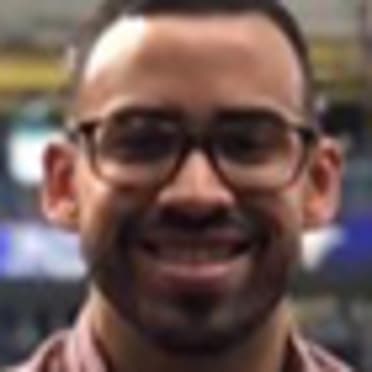What we learned from the Dodgers' historic '22 season
Kershaw stayed healthy and effective, while one rookie is already on the rise
This story was excerpted from Juan Toribio’s Dodgers Beat newsletter. To read the full newsletter, click here. And subscribe to get it regularly in your inbox.
For six months, the Dodgers’ season went as planned. They dominated the Majors, winning a franchise-record 111 games during the regular season. Los Angeles became just the fifth team ever to win that many games.
Come October, it was the complete opposite for the Dodgers. Their postseason run to a World Series lasted just four games. The last image of their season was them sitting in the visitors' dugout at Petco Park as they watched the Padres celebrate winning the NLDS.
Now the focus will shift toward building another winning team in 2023. It’ll be a busy offseason for president of baseball operations Andrew Friedman in what will be a crucial winter for the organization.
Before that happens, let’s summarize the 2022 season:
Defining moment: Seventh inning of NLDS Game 4
The Dodgers’ season ultimately came down to one disastrous inning. In the top half of the seventh, Los Angeles held a 2-0 lead and had an opportunity to go for the kill. The Dodgers had the bases loaded with nobody out, but were held to just one run. Max Muncy struck out in a crucial at-bat against left-hander Tim Hill. Justin Turner then grounded out to end the inning.
In the bottom half, the pitching decisions spiraled out of control. Tommy Kahnle was inefficient and failed to record a single out. Yency Almonte was one out away from keeping the game tied at 3, but manager Dave Roberts turned to Alex Vesia to face Jake Cronenworth. That resulted in a two-run single, effectively ending the Dodgers’ season.
It was a sour end to a season that included a lot of good memories for Los Angeles. But that’s how things roll in October sometimes.
What we learned: The regular season doesn’t guarantee anything
Having a great regular season assures that you’ll get a chance to compete in October, but it doesn’t guarantee success. That’s what the Dodgers have learned over the last decade, with their only title coming during the pandemic-shortened season in 2020.
Best development: Clayton Kershaw’s health
There was a lot of uncertainty surrounding Kershaw last offseason. Nobody really knew whether he would be able to handle a full workload, but the likely Hall of Famer answered all those questions, going 12-3 with a 2.28 ERA. Kershaw is an unrestricted free agent and has expressed interest in coming back. But it’s good to see Kershaw heading into the winter fully healthy this time around.
Area for improvement: Starting pitching
The Dodgers’ main focus this offseason will be adding some starting pitching help. As of now, the only returning starters are Julio Urías, Tony Gonsolin and Dustin May. Gonsolin has injury question marks and May has yet to put it all together.
Kershaw, Tyler Anderson and Andrew Heaney could all return, but they’ll head into the winter as free agents. Anderson could be a candidate to receive a one-year qualifying offer.
Starting pitching let the Dodgers down in October. Urías and Kershaw were good, not great. Gonsolin looked like a pitcher who wasn’t ready for the moment. Anderson, on the other hand, probably should’ve gotten at least one more inning on the mound. In order for the Dodgers to change their postseason fortunes, they’ll need to stack a couple more elite arms in the rotation.
On the rise: Miguel Vargas
Vargas only got 47 at-bats in his first taste of the Majors, but the 22-year-old Cuban utilityman will play a bigger role heading into the 2023 season. Vargas played mostly left field and first base with the Dodgers, but he’s capable of playing third and second base. His best position, however, is the batter’s box, as he possesses one of the best hit tools in the organization.
Justin Turner has a club option for 2023. If the Dodgers decide to move on, Vargas could be the player who benefits the most.
Team MVP: Freddie Freeman
The Dodgers had plenty of deserving options, especially Urías on the pitching side, but Freeman’s impact on the roster was felt right away in his first season in Los Angeles. Freeman led the Majors with 199 hits and played in 159 games, which was second on the team behind Trea Turner (160).
